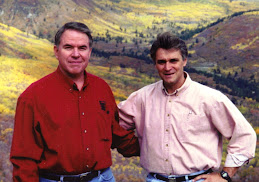I recently attended ASTD's TechKnowledge 2008 Conference in San Antonio. It was a very nice event with SOME discussion around Performance Support. It still amazes me how little conversation there is around this critical topic. I did two breakouts on the subject and we had some great turnouts. My bias is still that we're WAY too training focused and don't deal directly enough with the power of introducing PS into the mix.
There has been a lot of talk lately at the past two PS workshops around Communities of Practice or "CoP's" as they're more commonly called. I attended a great session at the conferenc on this topic with some very practical advice around doing this well.... Here are my notes:
A New Model for Informal Learning: Communities 2.0
Eric Sauve – Tomoye Corp
Opening General Discussion:
- Avoid labels with these technologies. They confuse – It’s a place people can come together to learn
- From a nunbers perspective, the more the better.
Strategies for Communities
1. Plan:
- Identify and enlist your team
- Articulate core purpose
2. Build:
- Identify Strategic Gaps
- Build Community Structure
- Identify engagement tool
- Market your community
3. Evolve:
- Evaluate
- Adjust
4. REPEAT FIRST STEPS
Technologies for Communities:
· Simple Authoring:
o Low tech and effort barriers
o Q & A bookmarking, blogs, ranking, wikis, rating
o Unstructured
o Leverage structured authoring documentation and enhance/add to this environment
Techniques for Engagement
· Questions and answers – Build in recognition and rewards – Post names of those who answer well and often. Link to better answers.
· Very few participants will add documents and such, BUT they will add context and ask questions around the original source
· Ranking
· Follow people they know and follow the activity they create
· Having their own sandbox or learning space can be addictive and drive usage




Avoiding labels -- so, should I not be telling people that they're part of a Community of Practice?
ReplyDeleteThis seems to parallel Elliott's recent question, "What Should We Call 'e' Learning?"
I answered there that I have no problem with the term elearning, because people know what I mean, but yet: "It gets trickier with communities of practice and social learning and collaborative platforms. I haven't been referring to that as elearning."
Labels do seem to confuse people.
It seems to me that things like CoPs, collaboration, etc. are supportive of eLearning, and not necesarily eLearning itself, though I suppose depending on the content it *could* be eLearning.
ReplyDelete